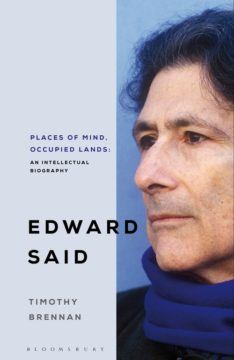 Adam Shatz in the LRB:
Adam Shatz in the LRB:
When Edward Said joined the Columbia University English department in 1963, a rumour spread that he was a Jew from Alexandria. He might as well have been. Born in Jerusalem in 1935 to well-off Palestinian Christian parents, he had grown up in the twilight years of multicultural Cairo, where many of his classmates were Egyptian Jews. His piano teacher was Ignace Tiegerman, a Polish Jew who had moved to Cairo in 1931 and founded a French-speaking conservatoire. Said’s closest friends at Princeton and Harvard, Arthur Gold, a brilliant Luftmensch prone to tormented idleness, and the future art critic Michael Fried, were Jews. His dissertation and first book were about Joseph Conrad’s explorations of ambiguity and double identities. As Timothy Brennan writes in Places of Mind, Said was ‘a photo negative of his Jewish counterparts’.
Said spent his first years at Columbia as a kind of an Arab Marrano, or crypto Palestinian, among Jewish and Wasp colleagues who were either indifferent or hostile to the Arab struggle with Israel. He published essays in the little magazines of the New York intellectuals, went to cocktail parties with Lionel Trilling and Mary McCarthy, and kept quiet about his identity and his politics. His parents, who were themselves estranged from Palestine (his father said Jerusalem reminded him of death), were relieved that their moody and contentious son was showing such prudence. Thanks to his father’s service in the American Expeditionary Forces during the First World War, Said was an American citizen, and if he was reinventing himself, well, that’s what immigrants did in the New World. The Egyptian literary theorist Ihab Hassan had shed his Arab identity when he moved to the US, and had never looked back.
But something in Said rebelled against the concealment and silence that the loss of Palestine had imposed, and that his father, William Said, had accepted, leaving behind not only the family’s past in Jerusalem but also his Arab name, Wadie.
More here.
